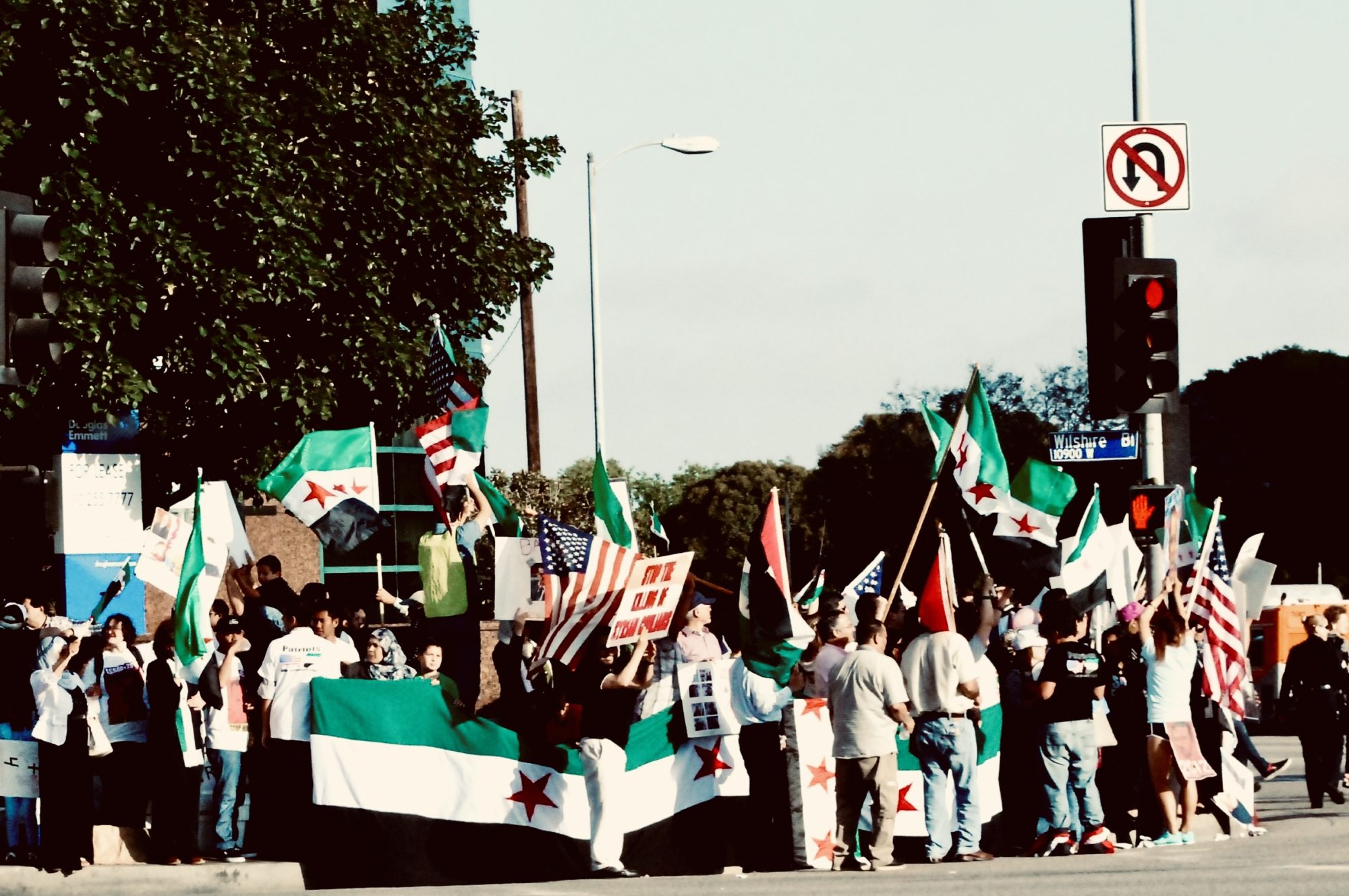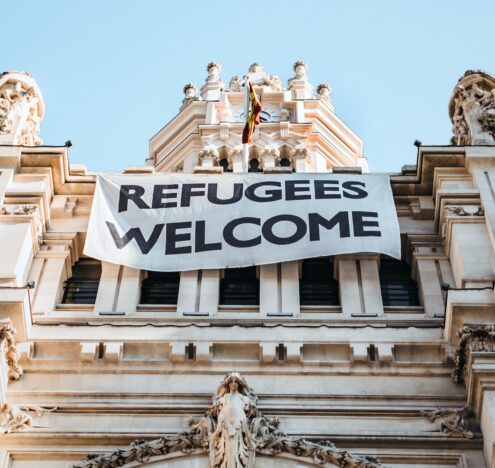In 2011, I traveled across the Kingdom of Jordan amidst the summer’s heat and dust to meet protest leaders and civil society advocates. As a newly-minted graduate student in political sociology, I had set out to answer one fundamental question: How does activism survive in an authoritarian context? So, armed with little more than a notebook and a simple voice recorder, I traveled from the northern city of Irbid to the cosmopolitan argileh bars of Amman to greet activists from Jordan’s civic sphere. These were the heydays of the “Arab Spring” uprisings when the vim and vigor of an empowered grassroots felt unstoppable. Nevertheless, I was shocked at how emboldened Jordanian activists were in our conversations. “I will tell you; I will tell the King himself,” they vowed in no uncertain terms, “we want reform, and we want it now. Not the overthrow of this regime, but real change.”
As summer turned into fall and I returned home to the US, I felt as if I was stuck outside the real action. Little did I know that the Arab Spring had emigrated to my backyard. Within blocks of my apartment in southern California, Libyan Americans gathered to celebrate the initial victory of revolutionaries against longtime dictator Muammar Gaddafi. The community lauded the heroic achievements of al–thuwar (the revolutionaries) while children bounced gleefully in rented moon bounces and smashed pinatas displaying pictures of Gaddafi’s face. Syrian Americans, too, were just starting to protest against the regime. I attended teach-ins, demonstrations, and fundraisers. Many told me that they had never felt so empowered to speak out against the murderous Assad regime. During an iftar gathering in the ballroom of a hotel in Anaheim, an organizer declared, “the wall of fear has fallen; we are no longer afraid.”
Yet, many Syrian Americans also seemed nervous. Organizers asked me not to take photographs. Participants eyed me suspiciously, questioned who I was, and anxiously inquired why I was taking notes. Some protesters wore sunglasses and scarves to hide their identities. Likewise, Libyan Americans affirmed that the vast majority of them had been afraid to openly organize against Gaddafi before 2011. “A lot of Libyans were scared,” a member of the youth group Khalas Gaddafi (Enough Gaddafi) told me in an interview. “If I say hey, ‘Gaddafi-this,’ everybody was like ‘shut up, I can’t even hang around you!’”
We were thousands of miles from the Middle Eastern region, infamous for its authoritarian entrenchment. So why did so many Syrian Americans seem more hesitant to protest openly in the suburbs of Santa Ana and Los Angeles than school teachers, women’s rights activists, and Muslim Brothers in Irbid and Amman?
THE SHADOW OF AUTHORITARIANISM
The more I met and spoke with members of the anti-regime diaspora in the Libyan and Syrian communities around southern California, across the US, and the UK, the more I learned about how authoritarianism had cast a shadow over these first- and second-generation immigrant communities. These regimes had near-total intolerance for dissent and had long inflicted what I call “transnational repression” to isolate, punish, and silence their critics abroad.
Before the Internet-enabled regimes tapped into dissidents’ communications and tracked their movements, their agents used informants, surveilled and exiled individuals and families, issued threats, withdrew student scholarships, launched physical attacks, kidnapped, and even assassinated their critics. The murder of journalist and Saudi-exile Jamal Khashoggi by agents of Crown Prince Mohammed bin Salman in 2018 illustrated the lengths regimes go — both figuratively and literally — to punish dissidents. My recent book, “The Arab Spring Abroad: Diaspora Activism Against Authoritarian Regimes,” and other writings explore the techniques these regimes used.
Emigrants, refugees, asylum seekers, and civil society advocates-in-exile reside at the intersection of transnational repression from home-country regimes and the xenophobic policies of democratic states.
These practices are not limited to the Middle East or North Africa: Leaders from Chile, Rwanda, Eritrea, Turkey, Iran, China, Central Asia, and Russia also engage in transnational repression of their diasporas. Regimes also engage in what I have dubbed “proxy punishment,” which is the repression of activists’ families, friends, and colleagues back home. This method of intimidation and violence is far cheaper than directly targeting the activists-in-exile abroad. For instance, Egyptian refugee Mohamed Sultan’s father Salah Sultan was incarcerated in Egypt after Mohamed filed a civil suit in a US federal court under the Torture Victim Protection Act against former Egyptian Prime Minister Hazem al-Beblawy following the 2013 crackdown. In prison, his father faced such inhumane treatment that Human Rights Watch reported grave concern for Sultan’s physical health and survival. Unfortunately, this is just one of many cases of “proxy punishment” taking place across the world today.
But perhaps the most effective means of transnational repression in authoritarianism’s globalized toolkit is cooperation with emigrants’ host countries. Regimes often collaborate in the practice of transnational repression under the pretenses of security and anti-terrorism. In so doing, they kidnap, render, surveil, and even murder one another’s enemies. While not entirely new, this practice has been legitimized by the Global War on Terror, and investigations by Freedom House suggest that violence is on the rise. For example, Thai exiles-in-hiding were murdered in Cambodia with Cambodian authorities’ knowledge and tacit approval, and Gaddafi’s opponents were sent to his torture chambers from their hiding places in Egypt. The cross-country collaboration between states under the guise of the “war on terror” has shrunken the places where activists can find sanctuary and threatens international human rights norms around the non-refoulment of refugees and anti-torture protocols.
Transnational repression also flourishes when democratic states enact anti-migrant, anti-asylum, and anti-refugee policies. While the Trump administration illustrated this populist practice par excellence with his ban on refugees from places such as Libya, Syria, and Yemen — the latter being a humanitarian catastrophe for which the US is jointly responsible for creating — the precedent he set continues in policy and practice. By the end of Trump’s term in office, the cap for refugees allowed into the US was only 15,000. (By comparison, Turkey hosts approximately 3.6 million Syrian refugees.) And a mere fraction of these slots were allocated to vetted refugees. As a result, by December 2020, less than 1,000 refugees had been processed for the 2021 fiscal year.
The devastating effects of Trump’s xenophobia reverberate today, including a crushing backlog and a “gutting” of the US’ resettlement infrastructure. These policies have also left the protections provided by a Temporary Protected Status designated for Yemenis, Haitians, and other at-risk groups in question. The instability and uncertainty activists face in their legal status in the US severely undermines their ability to continue their human rights advocacy.
Researchers and advocates have also raised the alarm about how regimes use international organizations and democratic states to repress their diasporas. For example, authoritarian regimes use Interpol to label opponents with “red notices,” flagging asylum seekers and refugees as criminals or suspected terrorists. When governments and policing organizations, such as the US Immigration and Customs Enforcement, treat these red notices as arrest warrants — despite the explicit ban on this practice in US federal law — legitimate asylum seekers and refugees end up incarcerated, unable to work, and unable to travel. As attorneys such as Sandra Grossman have highlighted, regimes use the US’ anti-immigration institutions and practices to repress peaceful critics and human rights, advocates.
AUTHORITARIANISM WITHOUT BORDERS
Over ten years ago, I set out to understand how activists survive in authoritarian contexts. My research shows that state borders do not delimit these “contexts.” Instead, emigrants, refugees, asylum seekers, and civil society advocates-in-exile reside at the intersection of transnational repression from home-country regimes and the xenophobic policies of democratic states. The result is the violation of international human rights norms, damage to the rule of law, and an ever-shrinking ground where activists, civil society members, and ordinary people are safe.
State borders still matter, of course. Democratic governments cannot put a complete stop to transnational repression. However, they can combat this practice, reestablish their sovereignty, and support human rights by facilitating refugee resettlement and sanctuary. They must also be proactive against the abuse of organizations like Interpol for repressive purposes, mainly because the US is the largest donor to Interpol (and now that the criminal regime in Syria has been re-admitted into the organization). By providing both sanctuary and protections to legitimate regime critics under siege, such as Syria, Yemen, Saudi Arabia, Russia, and China, democratic governments can protect civil society and support democracy globally.
Dana M. Moss is an Assistant Professor of Sociology at the University of Notre Dame. Her first book, The Arab Spring Abroad: Diaspora Activism Against Authoritarian Regimes (published in 2022 by Cambridge University Press), and available to download for free here.





















